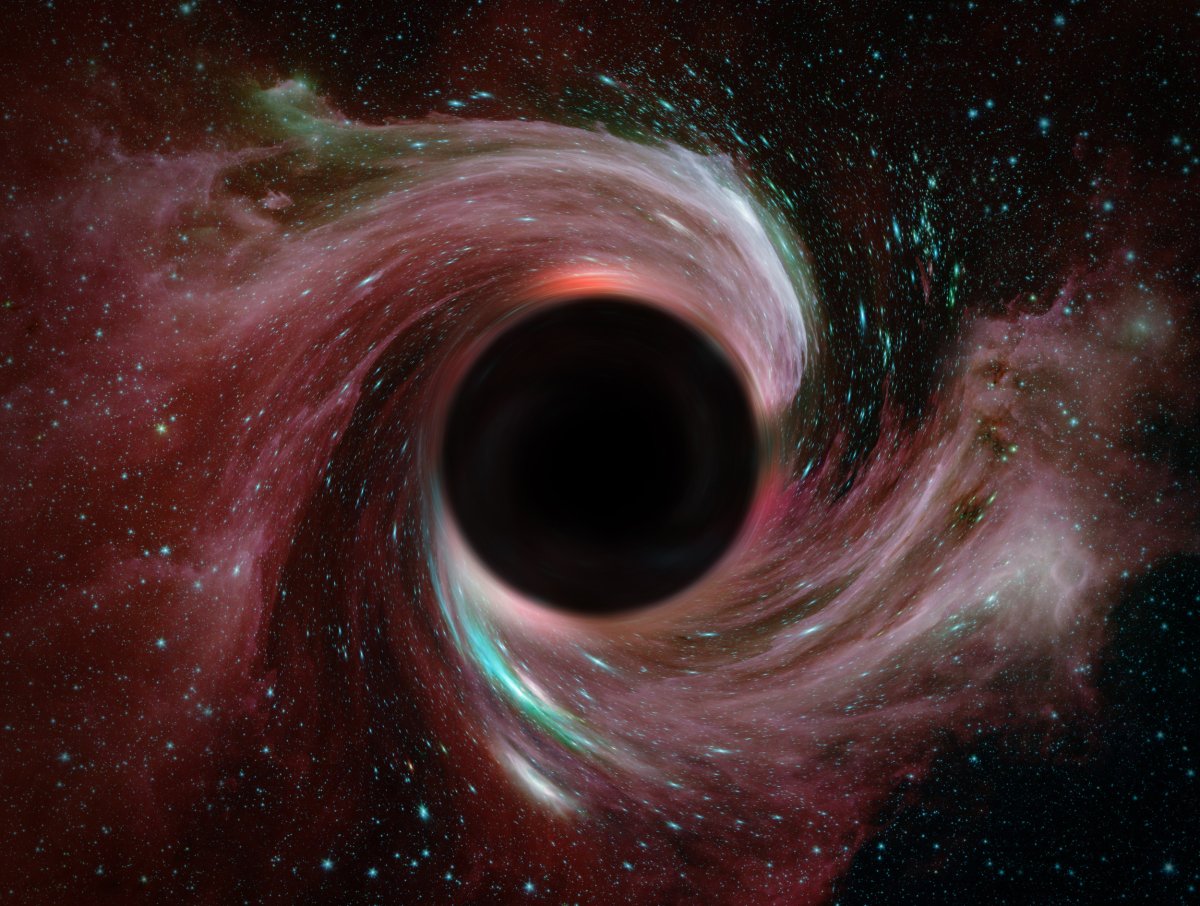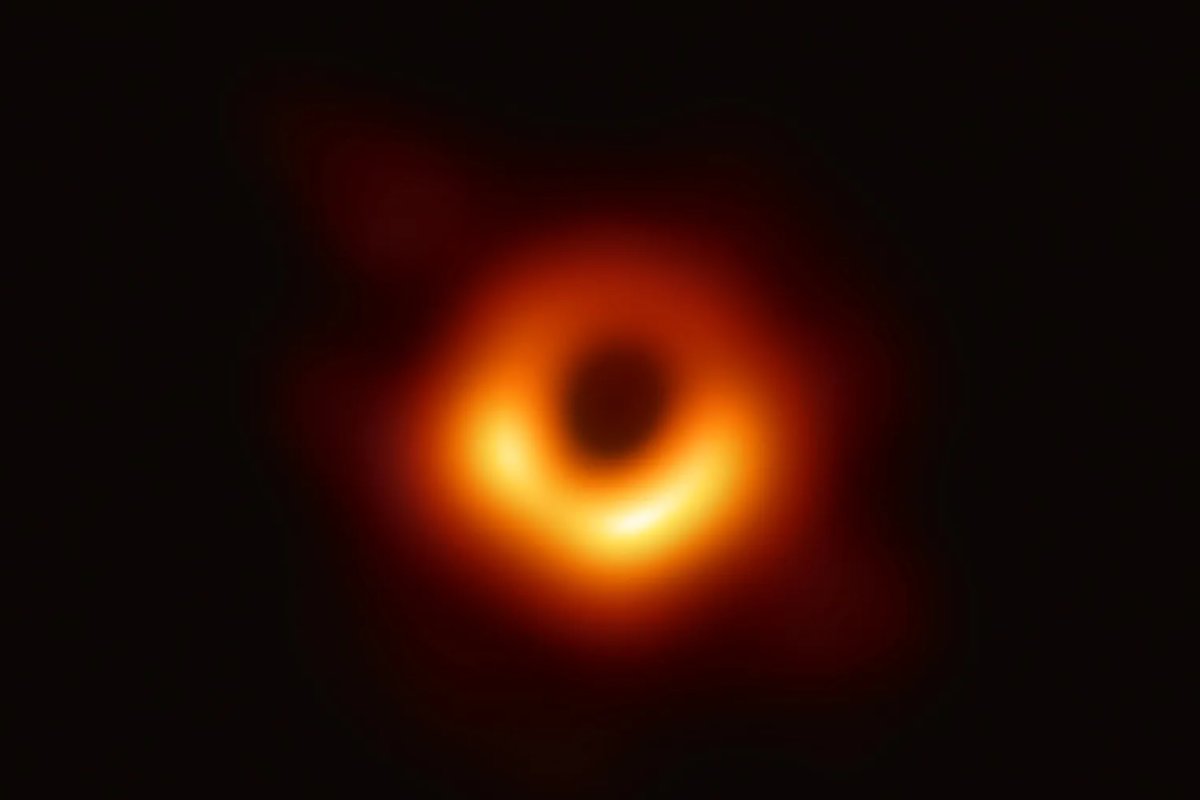The oldest black hole ever found has been discovered—and it's eating its host galaxy alive.
The supermassive black hole is thought to be over 13 billion years old, being born only 400 million years after the Big Bang that created the universe, a new paper in the journal Nature reveals.
This discovery challenges previous assumptions astronomers had about how black holes formed and grew.
Supermassive black holes have long been thought to grow to their immense size extremely slowly over billions of years. This newly discovered black hole is surprisingly large, with a mass a few million times that of our sun, but is extremely young, meaning that scientists may need to rethink how some black holes get so large.

Black holes form from the collapsed cores of dead stars and grow by gobbling up matter from their surroundings in the form of gas, dust and other stars. At the rate that scientists thought that black holes consumed matter, it would take this ancient black hole around a billion years to get to its current size, but the universe had not yet been around for a billion years when it reached its size.
"The novelty of our study is not only about having found the oldest black hole but also the fact that our data can provide a measurement of the black hole mass and of the rate at which it's accreting matter from its host galaxy," Roberto Maiolino, study co-author and professor of astrophysics at the University of Cambridge, told Newsweek.
This discovery, therefore, implies that black holes might form in other ways, perhaps being "born big" or consuming matter faster than we first thought.
"It's not its age that is surprising, it is the fact that it is already so big so early in the universe, which is difficult to explain with standard theories," Maiolino said.
"The additional surprising finding is that it's gobbling matter at an exceptionally high rate, which was previously thought to be hardly possible. This additional result indicates that early black holes might grow much faster than expected by previous models. Yet another theoretical possibility is that black holes are born big (these are the so-called Direct Collapse Black Holes), which could also explain why the black hole in this galaxy is already so massive."

The black hole was found in a galaxy named GN-z11 that had mystified scientists due to its exceptional brightness.
"It is located in a very luminous and compact galaxy, which was initially found by the Hubble Space Telescope. However, the nature of the high luminosity of the galaxy had been a mystery for years, as it would require an exceptionally large number of young stars within the small extent of the galaxy," Maiolino said. "The new observations from JWST have revealed that the high luminosity is not due to stars, but to the hot gas swirling around the black hole."
This black hole may be munching into its host galaxy too fast, slowly killing it: black holes consume gas, and the leftover gas is flung outwards, which may stop the formation of new stars. This will prevent the galaxy from self-sustaining but will also end up killing the black hole itself, as it runs out of stars to devour.
Do you have a tip on a science story that Newsweek should be covering? Do you have a question about black holes? Let us know via science@newsweek.com.
Uncommon Knowledge
Newsweek is committed to challenging conventional wisdom and finding connections in the search for common ground.
Newsweek is committed to challenging conventional wisdom and finding connections in the search for common ground.
About the writer
Jess Thomson is a Newsweek Science Reporter based in London UK. Her focus is reporting on science, technology and healthcare. ... Read more
To read how Newsweek uses AI as a newsroom tool, Click here.








